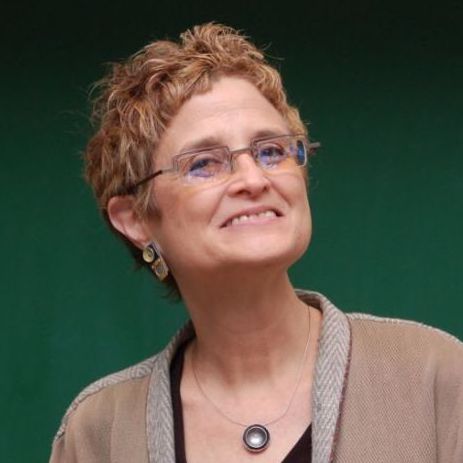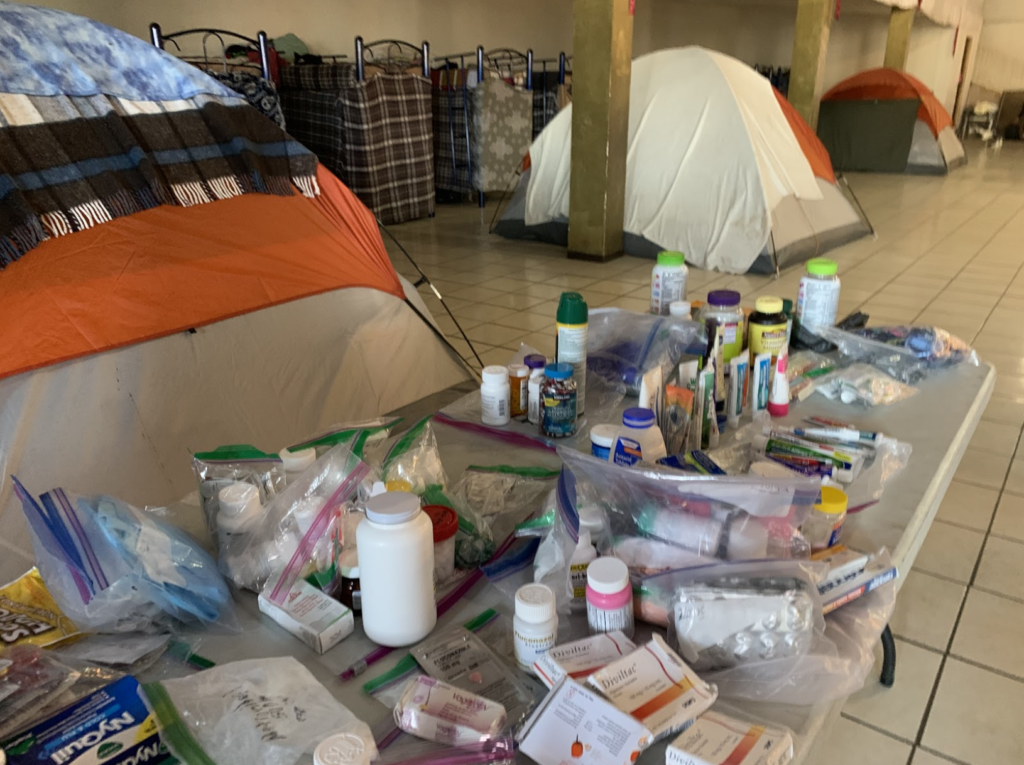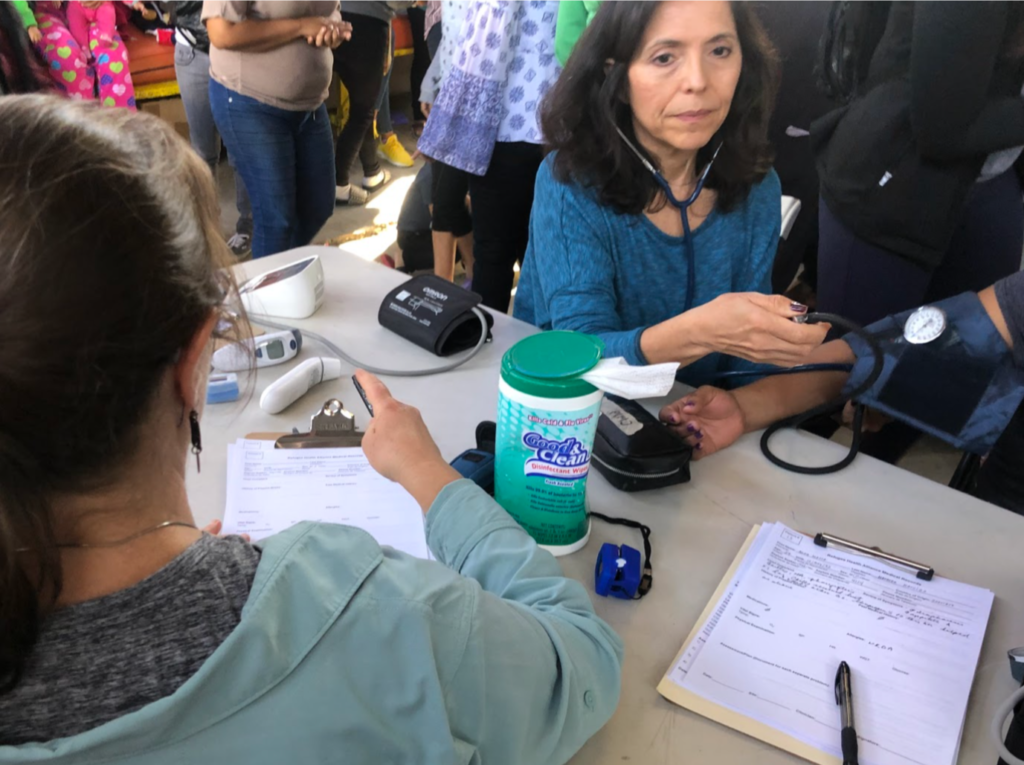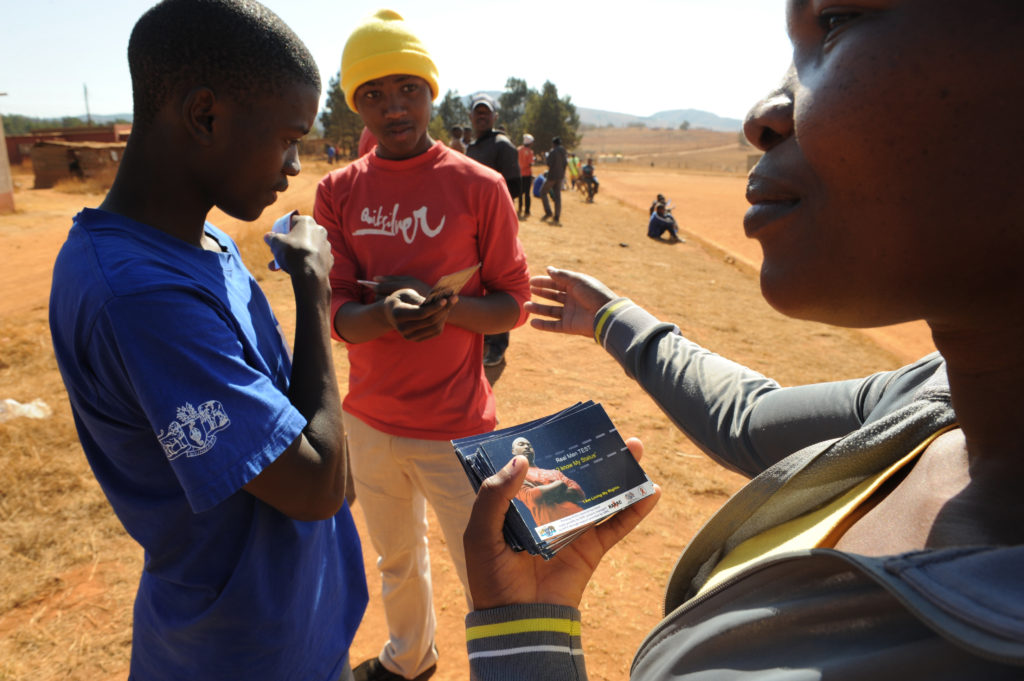Published: 10/21/2020
Dear Global Health Colleagues,
In this newsletter, we shed light on the complexity of the COVID-19 pandemic on a very vulnerable population: migrants and refugees at the U.S. – Mexico border.
Like so many acute global health concerns around the world, detentions at the U.S. – Mexico border have not only been compounded by the spread of COVID-19, but also swept aside in the news cycle, buried under a pandemic that has spiraled out of control.
The Trump administration’s actions at the border have plagued our country since long before the novel coronavirus, and I am proud of the Stanford faculty that have taken action, both then and now.
Dr. Paul Wise exemplifies these efforts with his work as special expert to the independent monitor of child detention facilities. Since the pandemic, child detention has quietly been conducted behind closed doors in hotels along the border. Dr. Wise’s observations and recommendations have been crucial to ongoing litigation, the focus of our recent feature article.
When child deaths were reported at the border in 2019, Dr. Lisa Chamberlain and Dr. Kay Daniels quickly organized a medical response called Families at the Border, sending supplies and medical teams. They continue to work to meet the health needs in those communities today, as described in our Note from the Field below.
Dr. Daryn Reicherter and Dr. Ryan Matlow have both worked tirelessly to protect against human rights violations to mental health through the Human Rights in Trauma Mental Health Program, coordinating with attorneys and human rights advocates to monitor and report on conditions for children and families both at the border.
When the child separation policy was made public in 2018, Dr. Ewen Wang organized a team of child experts to accompany counsel when making site visits. She continues to serve as a medical expert alongside Dr. Matlow, even testifying before congress.
Dr. Maya Adam collaborated with Stanford’s Digital MEDic team to create a series of videos that continue to train lawyers on how to interact with potentially traumatized children held in detention.
Let’s continue to shine a light on this pressing issue and the complex problems that surround it. I invite you to read on, learn more, and stay engaged, no matter how dense the newscycle becomes.
In solidarity,

Michele Barry
Drs. Ben and A. Jess Shenson Professor of Medicine and Tropical Diseases
Director of the Center for Innovation in Global Health
Senior Associate Dean for Global Health, Stanford University
Featured Article
Children are still detained at the border. The pandemic is pushing the crisis out of the news.
With unaccompanied minors now being detained in hotels during COVID-19, Global Health Faculty Fellow Dr. Paul Wise is among the few external people with full access to the facilities, detained children, and the agencies responsible for their care. Read the article here.
Resources
COVID-19 on the U.S. – Mexico Border
- Reproductive Justice, the Criminalization of Migration, and the Duty of Public Health to Intervene (10/6): “Over 21 people have died in ICE detention this year, the highest number in 15 years. Detention is antithetical to public health.” The newest post from Columbia’s Program on Forced Migration and Health makes a good case.
- Coming Out Stronger from COVID-19: Policy Options on Migrant Health and Immigration(10/5): Humanitarian concerns aside — without access to healthcare, the increasing vulnerability of migrants stands to impede our global response to COVID-19. This article presents a purely pragmatic case for migrant care and policy suggestions.
- Independent Monitor’s Interim Report on child detainment conditions at the border(8/26): At the instructions of Judge Gee, the independent monitor and Stanford Global Health Faculty Fellow Dr. Paul Wise, acting as special expert on pediatric health, compiled this most recent report on the conditions of undocument child detainment at the border during the pandemic, which is currently occurring behind closed doors in hotels. More here in our article.
Global COVID-19 Trends
- A life-course model for healthier aging: lessons learned during the COVID-19 pandemic (10/20): In the inaugural Lancet Healthy Longevity, this commentary I coauthored examines strategies from around the world to improve well-being in our aging populations, applying lessons from the pandemic to ordinary life.
- Detection of SARS-CoV-2 with SHERLOCK One-Pot Testing (10/8): Testing is still lacking in the US, and advancements like this are needed to scale our understanding of the pandemic. This promising new test has sensitivity on par with PCR but lacks the multiple liquid-transfer steps required to process, reducing processing time to about an hour.
- The Impact of Novel Coronavirus COVID‐19 on Non‐Communicable Disease Patients and Health Systems: A Review (10/5): A recent piece that I wrote with esteemed colleagues on COVID‐19 related considerations for NCD patients and their care providers.
- COVID-19: the deadly threat of misinformation (10/5): Another condemning report on misinformation from a research journal, this time specifically addressing dissemination by global leadership.
Regional and Country-Specific COVID-19 News
- Dying in a Leadership Vacuum (10/8): It is unheard of for a journal like NEJM to take a political stance, but this essential and well-deserved article is a stark declamation of US leadership in the face of the pandemic, citing the astonishing contextual failures to control the virus.
- Lessons We’ve Learned — Covid-19 and the Undocumented Latinx Community (10/7): Using insights gleaned from clinical work in Baltimore, this article speaks to the dangers of public discourse that incites fear in the undocumented community, leading to apprehension to interact with institutions which increases infection rates both inside and outside this vulnerable population.
- Report outlines long road to post-COVID recovery for Latin America and Caribbean (10/6): Latin America has been devastated by the pandemic, with the most calamitous and lasting effects being those on the economy.
Note from the Field: Tijuana, Mexico

| Lisa Chamberlain, Professor of Pediatrics Kay Daniels, Clinical Professor, Obstetrics & Gynecology Maggi Smeal, MD Santa Clara Valley Medical Center Pediatrics Sunniya Busravi, Clinical assistant professor of pediatrics Xin She, Clinical assistant professor of pediatrics |
Families at the Border (FATB) emerged from a Town Hall convened by the Stanford Department of Pediatrics in July 2019 in response to child deaths reported at the border. This group of refugee health advocates consists of Stanford physicians representing Pediatrics, Medicine, Obstetrics and Gynecology, and Emergency Medicine as well as medical students, staff, and community members.
Between August 2019 and February 2020, we sent six teams to Tijuana to serve the medical and material needs of the refugee population living in shelters. After our medical outreach and needs assessments were halted by the COVID-19 pandemic, we struggled with how best to support the growing refugee population from afar.

We quickly learned that one of our clinical partners, a group of local Tijuana midwives, were the sole caregivers for pregnant migrant women and their babies as hospitals closed to focus on COVID-infected patients. The eight Tijuana midwives care for 90-100 refugee patients per week, birthing two babies a day in a very low-resourced setting.
We began fundraising for medical and telehealth supplies and responded to their request to provide training in neonatal resuscitation. After searching for a partner organization, we found Laerdal Medical, a company specializing in resuscitation training equipment, who graciously donated five “helping babies breathe” kits. The kits contain a simulator mannequin and bag mask ventilation device and other equipment needed to teach resuscitation.

We sent the kits to the Tijuana midwives and delivered a virtual training session on best practices in caring for newborns in those crucial first minutes of life. On October 2nd, we held the first Helping Babies Breath session, a neonatal resuscitation program designed for low-resource settings to deliver care in the “Golden Minute” immediately after birth, a crucial period where 1 in 10 newborns needs help breathing. We taught the basics of HBB, refreshing the skills of the midwives and pre-med students in attendance. It was an energetic session where the midwives openly and honestly shared the joys and challenges of their work (including a recent neonatal death), and their deep commitment to serve the asylum-seeking families at the border.
One midwife shared, “I’m grateful for this experience because it has taught me a lot. In honor of them [the lost newborns] I will continue practicing and serving and growing in this practice as best as I can”.

We plan to continue our teaching and support of these wonderful caregivers and will meet with local health leaders to find ways to offer our services to ensure this vulnerable population is properly cared for in the midst of our global pandemic.
If you would like to support the work of Families at the Border, please consider participating in the Dia de Los Muertos fundraiser from October 31st through to November to experience an authentic Dia de los Muertos Altar to make this season extra spooky!
Stanford Global Health Faculty Fellow Feature
5 Questions with Dr. Pascal Geldsetzer on crafting impactful research
Dr. Geldsetzer has set himself the difficult goal of impacting policy and clinical practice with his research; a goal he hopes to reach at Stanford by utilizing rigorous methodology, cross-disciplinary collaborations, and strong in-country partnerships. Read the article here.
Stanford Global Health Opportunities
2021 Global Health Research Convening — Call For Abstracts
The 7th Annual Global Health Research Convening will be held virtually on January 28, 2021. The Convening is a one-day event bringing together Stanford students, faculty and researchers working in global health. This year’s theme is “Research During Pandemics.” While keynote speakers will present on this theme, the Convening welcomes research from all areas of global health. Abstracts will be selected for posters and verbal presentations. Submissions are due by 5pm on October 29, 2020. Learn more here.
WomenLift Health’s 2021 US Leadership Journey Application
WomenLift Health is part of the Stanford Center for Innovation in Global Health. The fully-funded, 12-month WomenLift Health Leadership Journey imparts contextualized leadership skills to address the individual, organizational, and societal challenges that women leaders in global health face. The Journey will be buttressed by virtual learning, mentoring, coaching touchpoints, week-long learning residencies, as well as a Leadership Project. The 2021-2022 Leadership Journey will take place from March 2021 – March 2022 in an all-virtual format. The deadline for applications is November 13, 2020. Learn more here.
Global Health Equity Scholars (GHES) Fellowship
The Global Health Equity Scholars (GHES) Fellowship is currently receiving applications for a one-year mentored research training program for post-doctoral fellows, upper-level PhD students and professional school (MD, DVM, DrPH, PharmD) students in low- and middle-income countries. The GHES Fellowship is part of the Global Health Program for Fellows and Scholars sponsored by the Fogarty International Center (FIC) and several collaborating institutes and centers at the National Institutes of Health (NIH). The deadline for applications is November 15, 2020. For more information contact Stanford GHES Program Manager Olivia Paige at olivia.paige@stanford.edu. Learn more here.
Consortium of Universities for Global Health Abstract Submissions
The Consortium of Universities for Global Health (CUGH) invites all persons wishing to report original research, innovative projects or novel programs related to global health to submit abstracts to be considered for presentation. All abstract presentations will be made in unmoderated virtual poster formats (‘electronic posters’). All abstract presenters MUST register and pay the registration fee in order to have an accepted abstract included at the virtual conference. Only one abstract per submitter/presenter will be accepted. Deadline for submission is October 23, 2020. Learn more here.
Upcoming Events
Webinar: Low-cost, automated surveys via WhatsApp
Stanford Immigration Policy Lab
October 21, 2020 | 8:00 am – 9:00 am PT
Event information and registration.
Join Immigration Policy Lab to learn a new way to design and manage surveys on WhatsApp. Led by Stanford’s Immigration Policy Lab and our partners, Mercy Corps and Lutheran Immigration and Refugee Service, this live webinar will show you how to:
- Power your WhatsApp surveys with Twilio, a web-based communications platform.
- Automate data collection and generate high-quality data using the WhatsApp Business API, Twilio, and the Google Developer Console.
You’ll also see results from two WhatsApp panel surveys with refugees in Colombia and the United States. Participants will get early access to a complete guide to the process!
Speaker Series: A Conversation with David Miliband
King Center on Global Development
Oct 29, 2020 | 12:00 pm – 1:00 pm PT
Event information and registration.
On Thursday, October 29, the Stanford King Center on Global Development will host a conversation with David Miliband, President and CEO of the International Rescue Committee, as part of the center’s ongoing Speaker Series. The discussion will focus on the global refugee crisis and will be moderated by Pascaline Dupas, the King Center faculty director and professor of economics, and Jeremy M. Weinstein, professor of political science and Fisher Family Director of Stanford Global Studies. There are nearly 80 million forcibly displaced people worldwide, including 26 million refugees who have left their home countries. As the number of people fleeing conflict, persecution, and the effects of climate change continues to rise, most refugees will continue to be hosted in low- and middle-income countries.
Funding Opportunities
A $495,000 funding opportunity for junior physician-scientist faculty conducting clinical research in any disease area. Stanford Assistant Professors with UTL, MCL, NTLR, and CE appointments and Instructors who were appointed to their first post-training, full-time position between December 1, 2016, and December 1, 2019 are eligible (see eligibility for additional criteria). Pre-proposal (required) deadline: November 13, 2020, 3 pm ET
Stanford’s Research Management Group has created a website that provides a complete listing of funding opportunities for COVID-19 research available to all researchers (not just at Stanford).

